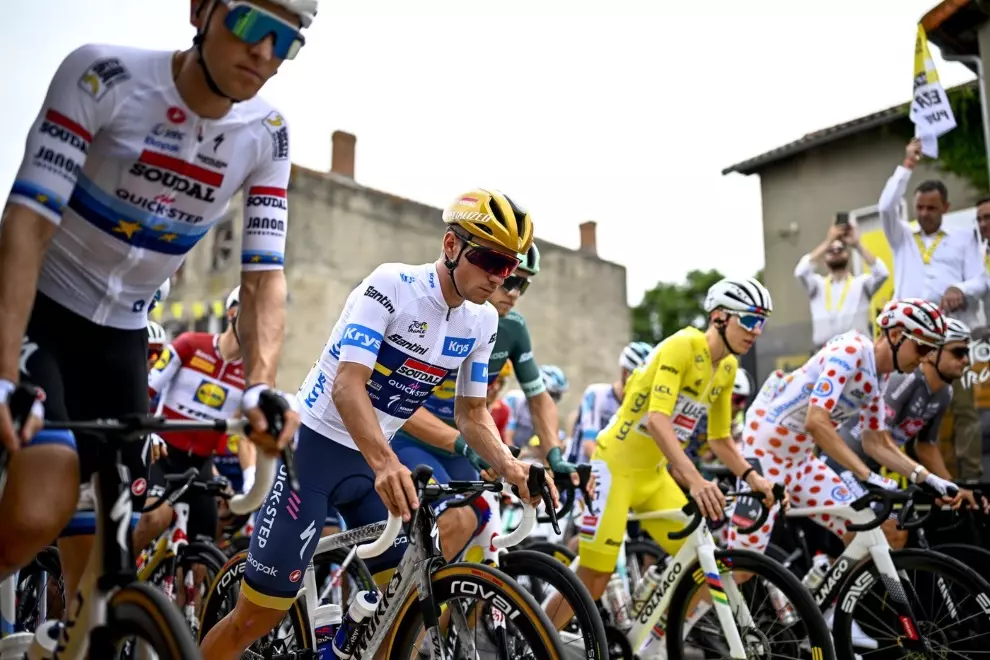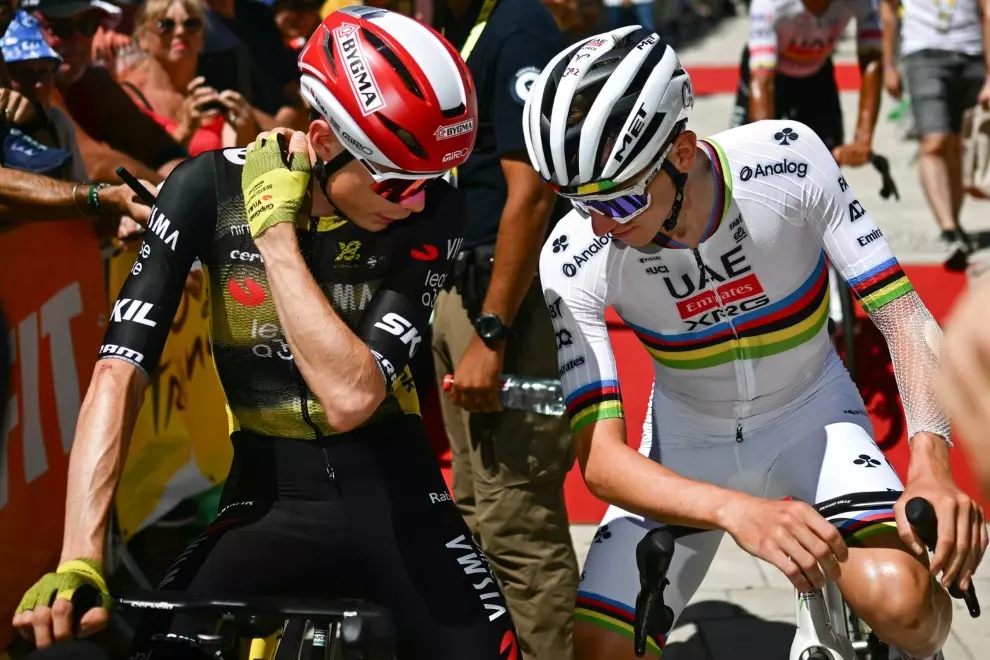Although an official press release has not yet been issued, Europe 1 has reported Tour director Christian Prudhomme as saying: “You used to see the winner surrounded by two hostesses, with five dignitaries on one side and five representatives of the sponsors on the other. Now it will be different with only one dignitary and one representative of the yellow jersey sponsors, as well as a hostess and a host for the first time.”

This introduction of a male host indeed seems novel for the Tour de France but the race director was also quick to draw attention to the fact that it was not an unprecedented move for a major cycling event. As he explained, “we have already been doing it in other races for 20 years, as in Liège-Bastogne-Liège.” Nevertheless, the podium girls have long been a highly visible feature of cycling’s top race, so it is unlikely that the decision to do away with them was taken lightly.
Shifting cultural attitudes
The choice to abandon the practice of podium girls is likely due to an effort on the part of cycling’s most influential governing bodies to reflect the standards and values of an increasingly gender-conscious society and younger fans. Criticized by many as a sign of cycling’s outdated ways and ingrained patriarchal structure, the women handing out prizes and kisses have been a point of contention for a while. In fact, with many condemning the practice as anachronistic and even harmful to women, there was a petition circulated in 2019 to end the tradition for good. It received over 38,000 signatures, providing a decisive indication that the community was largely ready to see an official change.
Acknowledging a less than perfect past
These calls for change are not merely an issue of optics either. There have been some notable incidents involving podium girls that seem almost hard to believe in the current context of sex and gender reckoning. Take, for example, the 2013 confrontation which led Slovak cyclist Peter Sagan to have to record an apology after pinching the buttocks of Tour of Flanders podium girl Maya Leye during an awards ceremony. Or the 2017 interview during which rider Jan Bakelants told fans that he needed a packet of condoms for his free time at the Tour as “you never know where those podium chicks have been hanging out.” He was later forced to apologise.

The fact that these incidents went largely underreported only a few years ago seems striking now but it is also a sign of how quickly social norms and expectations have shifted and how the spotlight on inappropriate sexual conduct has been intensified.
A women’s Tour de France?
That is not to say that misconduct was the norm but rather that the upper echelons of cycling governance are sensing that the public mood is changing. It isn’t that they don’t want to see women at the Tour de France, they would just rather see them racing than hanging out trophies. Indeed, one of the oft-lauded critiques of the practice of podium girls was the fact that they were the only women presented prominently at the race.
On the tails of a successful virtual Tour de France that featured women racing under the same preeminent banner as men and increasingly viable calls for equality — it seems that the podium girls just no longer had a place at cycling’s most visible event. Whether or not this speaks to true structural change or will remain a largely symbolic act remains to be seen. In the meantime, we’re glad to see A.S.O. taking some critical steps in the right direction and look forward to a continued focus on gender equity going forward!




